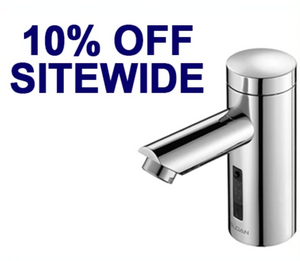Title: "Conserving Every Drop: The Power of Improved Plumbing for Water Savings
Water is a precious resource that sustains life on our planet. Yet, it's a resource we often take for granted. In many parts of the world, water scarcity is becoming a pressing issue, making it vital for us to use this resource wisely. One of the most effective ways to do this is through improved plumbing systems. In this blog post, we will explore the importance of improved plumbing in water savings and how it benefits both the environment and your wallet.
The State of Water Resources
Before delving into the world of improved plumbing, let's take a moment to understand the current state of our water resources. According to the United Nations, over 2 billion people worldwide lack access to clean and safe drinking water, and nearly 4.5 billion people lack access to adequate sanitation facilities. This alarming situation highlights the urgency of conserving water wherever possible.
How Improved Plumbing Saves Water
1. Low-flow Fixtures: One of the most effective ways to reduce water consumption is by installing low-flow fixtures such as faucets, showerheads, and toilets. These fixtures are designed to use significantly less water without compromising performance. For example, a low-flow toilet can use as little as 1.6 gallons per flush compared to older models that use 3-7 gallons.
2. Leak Detection: Improved plumbing systems often come with advanced leak detection technologies. Even minor leaks can waste hundreds of gallons of water over time. These systems can alert homeowners to leaks in real-time, enabling them to take immediate action.
3. Smart Water Management: The advent of smart home technology has brought us smart water management systems. These systems use sensors and data analysis to monitor water usage and can automatically shut off water to prevent wastage in case of leaks or excessive use.
4. Greywater Recycling: Some advanced plumbing systems include greywater recycling systems. These systems collect water from sources like sinks and showers, treat it, and reuse it for non-potable purposes like flushing toilets or watering plants.
5. Insulation: Insulating water pipes reduces heat loss, ensuring that hot water arrives at the faucet faster and reducing the need to let the tap run while waiting for hot water.
Benefits of Improved Plumbing
1. Water Savings: The most obvious benefit is reduced water consumption. Improved plumbing can cut household water usage by up to 50%, resulting in lower water bills.
2. Energy Savings: Since heating water accounts for a significant portion of energy bills, using less hot water can lead to substantial energy savings.
3. Environmental Impact: Conserving water reduces the strain on freshwater resources, which is crucial for ecosystems and wildlife. It also reduces the energy required to treat and transport water.
4. Improved Home Value: Homes equipped with modern, water-efficient plumbing systems often have higher resale values. Buyers appreciate the long-term cost savings and eco-friendly features.
Conclusion
In a world where water is becoming scarcer, it's essential to embrace sustainable practices. Improved plumbing is a practical and effective way to save water, reduce energy consumption, and contribute to a more sustainable future. By making small changes to your plumbing system, you can play a significant role in conserving water and protecting this vital resource for generations to come. It's not only an investment in your home but also an investment in the health of our planet.



